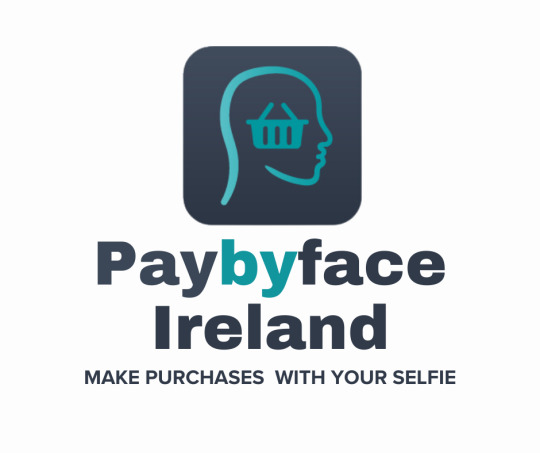#fintech start-up
Explore tagged Tumblr posts
Text

Revolutionizing Payments in Europe with PAYBYFACE® Biometric Payment & Loyalty Platform.
PayByFace Offers a Unique Bio Metric Payment System, PayByFace takes Customer Loyalty to the next level. PayByFace Makes Digital Advertising Simple and effordable for Small and Large Businesses.
PayByFace continues to add to its suite of value added services included in their Ecosystem.
PayByFace, a innovative Amsterdam-based fintech start-up, announces several country based agreements and subsidiary expansions across several major European markets, including the Netherlands, UK, Ireland, France, Italy, Spain, Switzerland, Germany, Austria, Romania, and Bulgaria.
This is a significant milestone for PayByFace and its journey to both enable and scale biometric facial recognition technology adoption and in our commitment to simplify the future of check-out interactions while remaining fully GDPR compliant with the EU regulation.
PayByFace the future of payments is poised to transform the way European consumers interact with retailers at the check-out, offering unparalleled convenience, loyalty value focus, and enhanced security in the digital era.
For more information reach out to us here at PayByFace Ireland
www.paybyface.ie
#FaceRecognition #PayByFace #Biometricpayment #Futureofpayments #FacialRecognitionPayments #Securecontactlesspayments
#biometric payment#facial recognition payments#paybyface#future of payments#secure contactless payments#European payments#loyalty program#digital advertising#fintech start-up#facial recognition technology#GDPR compliant#convenience at check-out#enhanced security#customer loyalty#payment ecosystem#value added services#European market expansion#biometric facial recognition technology adoption.
2 notes
·
View notes
Text
Elon Musk va deveni primul trilionar din lume până în 2027 | Știri digital & tech
DISRUPTION. Meta a lansat cei mai șmecheri ochelari deștepți și dă de înțeles că vrea să uite de social media, A.I. consumă energie mai ceva ca Flămânzilă al lui Petre Ispirescu, Apple a lansat noul iPhone 16 dar vom trece rapid peste asta. [EXPLAINER] A avut loc Meta Connect 2024, eveniment în cadrul căruia Meta, compania care deține Facebook, Instagram, WhatsApp și Threads, a lansat produse…
0 notes
Text
5 Impactful Investing Opportunities in India in 2024

Investing in startups in India has emerged as a promising avenue for investors seeking high-growth opportunities and impactful returns. With a vibrant entrepreneurial ecosystem, technological innovation, and supportive government policies, India offers a conducive environment for startup investments. In this comprehensive guide, we will explore five impactful investing opportunities in India in 2024, providing insights into emerging trends, sectors, and investment strategies that have the potential to generate significant returns and drive positive societal impact.
1. Fintech Innovation:
Fintech, or financial technology, is one of the most dynamic and rapidly evolving sectors in India's startup ecosystem. With the proliferation of smartphones, internet connectivity, and digital payment infrastructure, fintech startups are revolutionizing the way people access financial services, manage their finances, and conduct transactions. Opportunities abound in areas such as digital banking, mobile payments, peer-to-peer lending, robo-advisory services, and blockchain-based solutions. Investing in fintech startups allows investors to capitalize on India's digital transformation, financial inclusion initiatives, and the transition towards a cashless economy. By supporting innovative fintech solutions, investors can drive financial empowerment, promote economic growth, and create value for underserved segments of the population.
Here's a detailed explanation of why fintech innovation is an impactful investing opportunity in India in 2024:
1. Digital Transformation of Financial Services:
Fintech startups are at the forefront of India's digital transformation journey, offering innovative solutions to meet the evolving needs of consumers and businesses in the financial services sector. With the widespread adoption of smartphones, internet banking, and digital payment platforms, fintech startups are leveraging technology to deliver seamless, accessible, and user-friendly financial services, including digital banking, mobile payments, remittances, wealth management, and insurance.
2. Financial Inclusion and Access:
Fintech innovation is driving financial inclusion and expanding access to financial services for underserved and unbanked segments of the population in India. By leveraging mobile technology, biometric authentication, and digital KYC (Know Your Customer) processes, fintech startups are overcoming traditional barriers to banking, enabling individuals and businesses in remote areas to open bank accounts, access credit, make digital payments, and manage their finances more effectively.
3. Disruption of Traditional Banking Models:
Fintech startups are disrupting traditional banking models and challenging incumbents by offering agile, customer-centric, and cost-effective alternatives to traditional banking services. Digital-only banks, peer-to-peer lending platforms, and fintech-driven lending solutions are gaining traction among tech-savvy consumers and millennials who prioritize convenience, transparency, and personalized financial services.
4. Innovation in Payment Systems:
Fintech startups are driving innovation in payment systems and reshaping the payments landscape in India. Mobile wallets, UPI (Unified Payments Interface), contactless payments, and QR code-based payment solutions have transformed the way people transact and conduct business, offering speed, security, and interoperability across different payment platforms. Fintech startups are also exploring emerging technologies such as blockchain and cryptocurrency to enable cross-border payments, reduce transaction costs, and enhance financial inclusion.
5. Wealth Management and Investment Solutions:
Fintech startups are democratizing access to wealth management and investment solutions, making it easier for individuals to invest in stocks, mutual funds, and other financial instruments. Robo-advisors, algorithmic trading platforms, and online investment platforms offer personalized investment advice, portfolio management services, and automated investment strategies tailored to individual risk profiles and investment goals.
6. Regulatory Support and Innovation Sandbox:
The Indian government and regulatory authorities have been supportive of fintech innovation, introducing policies and regulatory frameworks to promote digital payments, encourage fintech investments, and foster innovation in the financial services sector. Initiatives such as the Regulatory Sandbox Framework and the Bharat Bill Payment System (BBPS) provide a conducive environment for fintech startups to test innovative solutions, collaborate with traditional financial institutions, and scale their operations while ensuring compliance with regulatory requirements.
7. Global Expansion and Market Opportunities:
Fintech startups in India are well-positioned to expand their footprint and tap into global markets, leveraging India's strong technology talent pool, English-speaking workforce, and growing reputation as a fintech hub. With increasing investor interest, strategic partnerships, and cross-border collaborations, Indian fintech startups have the opportunity to scale their operations internationally, address global challenges, and drive financial inclusion and innovation on a global scale.
2. Healthcare Technology:
Healthcare technology, or healthtech, is experiencing unprecedented growth and innovation in India, fueled by factors such as rising healthcare costs, increasing chronic diseases, and the need for accessible and affordable healthcare solutions. Healthtech startups are leveraging technologies such as artificial intelligence, telemedicine, remote monitoring, and electronic health records to improve healthcare delivery, diagnosis, and patient outcomes. Investing in healthtech startups offers investors the opportunity to address critical healthcare challenges, enhance access to quality healthcare services, and promote preventive care and wellness. By supporting innovative healthtech solutions, investors can contribute to improved healthcare access, reduced healthcare costs, and better health outcomes for millions of people across India.
Here's a detailed explanation of why healthcare technology presents an impactful investing opportunity in India in 2024:
1. Addressing Healthcare Challenges:
India faces significant healthcare challenges, including inadequate infrastructure, shortage of healthcare professionals, uneven distribution of healthcare services, and rising disease burden. Healthtech startups are leveraging technology to address these challenges by offering innovative solutions in areas such as telemedicine, remote patient monitoring, digital diagnostics, electronic health records (EHR), and healthcare analytics. By improving access to healthcare services, enhancing diagnostic capabilities, and optimizing healthcare delivery, healthtech startups have the potential to transform India's healthcare landscape and drive positive health outcomes.
2. Telemedicine and Remote Consultations:
Telemedicine platforms allow patients to consult with healthcare providers remotely through video calls, chat sessions, and virtual consultations. These platforms enable patients to access medical advice, diagnosis, and treatment from the comfort of their homes, reducing the need for physical visits to healthcare facilities and overcoming geographical barriers to healthcare access. Telemedicine startups are leveraging artificial intelligence (AI), machine learning (ML), and data analytics to offer personalized, evidence-based healthcare recommendations and improve patient outcomes.
3. Remote Patient Monitoring and IoT Devices:
Remote patient monitoring (RPM) solutions and Internet of Things (IoT) devices enable continuous monitoring of patients' vital signs, health parameters, and medication adherence outside of traditional healthcare settings. Wearable devices, smart sensors, and mobile health apps collect real-time data on patients' health status, allowing healthcare providers to track disease progression, manage chronic conditions, and intervene proactively in case of emergencies. RPM startups are leveraging IoT technology to empower patients to take control of their health, prevent hospital readmissions, and reduce healthcare costs associated with chronic disease management.
4. Digital Diagnostics and Imaging:
Digital diagnostics startups are revolutionizing medical imaging, pathology, and diagnostic testing through the use of advanced imaging techniques, AI algorithms, and cloud-based platforms. AI-powered diagnostic tools analyze medical images, laboratory results, and patient data to detect abnormalities, identify diseases, and assist healthcare providers in making accurate diagnoses. Digital diagnostics solutions enable faster, more accurate diagnosis, reduce diagnostic errors, and improve patient outcomes by facilitating early detection and treatment of diseases such as cancer, cardiovascular disorders, and infectious diseases.
5. Electronic Health Records and Interoperability:
Electronic health records (EHR) platforms digitize patients' medical records, histories, and treatment plans, enabling secure storage, retrieval, and sharing of health information across healthcare providers and institutions. Interoperable EHR systems facilitate seamless exchange of patient data, medical histories, and diagnostic reports between hospitals, clinics, pharmacies, and laboratories, ensuring continuity of care and coordination among healthcare providers. EHR startups are leveraging blockchain technology and secure data exchange protocols to ensure patient privacy, data security, and compliance with regulatory requirements such as HIPAA (Health Insurance Portability and Accountability Act) and GDPR (General Data Protection Regulation).
6. Healthcare Analytics and Predictive Modeling:
Healthcare analytics startups analyze large volumes of healthcare data, including clinical records, claims data, and patient demographics, to derive actionable insights, identify trends, and optimize healthcare delivery. Predictive analytics models leverage machine learning algorithms to forecast disease outbreaks, predict patient outcomes, and optimize resource allocation in healthcare facilities. Healthcare analytics solutions enable evidence-based decision-making, resource optimization, and cost-effective healthcare delivery, leading to improved patient outcomes, reduced healthcare costs, and enhanced operational efficiency in healthcare organizations.
7. Regulatory Support and Policy Initiatives:
The Indian government and regulatory authorities have introduced policies and initiatives to support healthcare technology innovation, promote digital health adoption, and improve healthcare access and affordability. Initiatives such as the National Digital Health Mission (NDHM), Digital India Healthcare Vision, and Telemedicine Practice Guidelines provide a conducive environment for healthtech startups to develop and deploy innovative solutions, collaborate with healthcare providers, and scale their operations while ensuring compliance with regulatory requirements and quality standards.
3. Clean Energy and Sustainability:
Clean energy and sustainability have emerged as priority areas for investment in India, driven by environmental concerns, climate change mitigation efforts, and the transition towards renewable energy sources. Startups in the clean energy sector are developing innovative solutions in areas such as solar power, wind energy, energy storage, electric vehicles, and sustainable agriculture. Investing in clean energy startups allows investors to support India's renewable energy goals, reduce carbon emissions, and promote environmental sustainability. By backing innovative clean energy solutions, investors can contribute to India's energy security, create green jobs, and mitigate the adverse impacts of climate change on communities and ecosystems.
4. Edtech Revolution:
The education technology, or edtech, sector in India is undergoing a rapid transformation, driven by factors such as digitization of education, remote learning trends, and the adoption of online education platforms. Edtech startups are leveraging technology to deliver personalized, interactive, and accessible learning experiences across various subjects and skill levels. Opportunities abound in areas such as online tutoring, test preparation, skill development, vocational training, and lifelong learning. Investing in edtech startups allows investors to support inclusive and equitable education, bridge the digital divide, and empower learners of all ages to acquire knowledge and skills for personal and professional growth. By backing innovative edtech solutions, investors can contribute to India's human capital development, workforce productivity, and socio-economic progress.
5. Agritech Innovation:
Agritech, or agricultural technology, is poised for significant growth and innovation in India, driven by the need to enhance agricultural productivity, improve farmer livelihoods, and ensure food security. Agritech startups are leveraging technologies such as precision farming, IoT sensors, drones, AI-powered analytics, and supply chain optimization to address challenges across the agricultural value chain. Opportunities abound in areas such as farm management software, precision agriculture, crop monitoring, market linkages, and post-harvest management. Investing in agritech startups allows investors to support sustainable agriculture practices, increase farm efficiency, and reduce food waste. By backing innovative agritech solutions, investors can contribute to rural development, farmer prosperity, and food sustainability in India.
In conclusion, investing in startups in India presents investors with five impactful opportunities to drive positive change and achieve financial returns in 2024. By strategically allocating capital to sectors such as fintech, healthtech, clean energy, edtech, and agritech, investors can support innovative solutions, promote socio-economic development, and address pressing challenges facing India and the world. However, startup investing carries inherent risks, and investors should conduct thorough due diligence, diversify their portfolios, and seek professional advice to mitigate risks and maximize returns. With the right investment strategies, investors can play a significant role in fueling innovation, driving economic growth, and creating lasting impact through startup investments in India.
This post was originally published on: Foxnangel
#investing opportunities#startups in india#investing in startups in india#start up investment in india#startup investments#investment strategies#fintech innovations#invest in startups india#foxnangel
1 note
·
View note
Text
Revolut, une fintech basée au Royaume-Uni, est en train de révolutionner le secteur bancaire et financier. Depuis sa création, cette start-up innovante a su captiver l’attention des investisseurs et des consommateurs grâce à ses solutions technologiques avancées et à son approche centrée sur l’expérience client. Voici un aperçu de cette entreprise de services financiers et de son impact sur l'écosystème financier global.
0 notes
Photo

Fintech start-up Rauva buys Banco Empresas Montepio for €30m Rauva's CEO and founder, Jon Fath, says the start-up is on its way to become one of Portugal’s first unicorns. https://www.fintechfutures.com/2023/09/fintech-start-up-rauva-buys-banco-empresas-montepio-for-e30m/
#Banking#Cards#Corporate & Commercial Banking#Digital#Financial Services/Finserv#Lending#Mergers & Acquisitions/M&A#Mobile#SME#Start-up#Super-app#Banco Empresas Montepio#Banco Montepio#homepage-featured-4#Rauva#Tyler Pathe#What the FinTech
0 notes
Link
Euro FinTech Start-up Native Spaces, the AirBNB of Venue Locations, Secures Funding #janetwalker #hautelifestylecom #theentertainmentzonecom #fintech #fintechnews #eurofins #nativespaces #euro #funding #startup #startupnews #startupecosystems
#janet walker#haute-lifestyle.com#the-entertainment-zone.com#fintech#Fin Tech News#start-up#native spaces#euro fintech
1 note
·
View note
Text
The CFPB is genuinely making America better, and they're going HARD

On June 20, I'm keynoting the LOCUS AWARDS in OAKLAND.

Let's take a sec here and notice something genuinely great happening in the US government: the Consumer Finance Protection Bureau's stunning, unbroken streak of major, muscular victories over the forces of corporate corruption, with the backing of the Supreme Court (yes, that Supreme Court), and which is only speeding up!
A little background. The CFPB was created in 2010. It was Elizabeth Warren's brainchild, an institution that was supposed to regulate finance from the perspective of the American public, not the American finance sector. Rather than fighting to "stabilize" the financial sector (the mission that led to Obama taking his advisor Timothy Geithner's advice to permit the foreclosure crisis to continue in order to "foam the runways" for the banks), the Bureau would fight to defend us from bankers.
The CFPB got off to a rocky start, with challenges to the unique system of long-term leadership appointments meant to depoliticize the office, as well as the sudden resignation of its inaugural boss, who broke his promise to see his term through in order to launch an unsuccessful bid for political office.
But after the 2020 election, the Bureau came into its own, when Biden poached Rohit Chopra from the FTC and put him in charge. Chopra went on a tear, taking on landlords who violated the covid eviction moratorium:
https://pluralistic.net/2021/04/20/euthanize-rentier-enablers/#cfpb
Then banning payday lenders' scummiest tactics:
https://pluralistic.net/2022/01/29/planned-obsolescence/#academic-fraud
Then striking at one of fintech's most predatory grifts, the "earned wage access" hustle:
https://pluralistic.net/2023/05/01/usury/#tech-exceptionalism
Then closing the loophole that let credit reporting bureaus (like Equifax, who doxed every single American in a spectacular 2019 breach) avoid regulation by creating data brokerage divisions and claiming they weren't part of the regulated activity of credit reporting:
https://pluralistic.net/2023/08/16/the-second-best-time-is-now/#the-point-of-a-system-is-what-it-does
Chopra went on to promise to ban data-brokers altogether:
https://pluralistic.net/2024/04/13/goulash/#material-misstatement
Then he banned comparison shopping sites where you go to find the best bank accounts and credit cards from accepting bribes and putting more expensive options at the top of the list. Instead, he's requiring banks to send the CFPB regular, accurate lists of all their charges, and standing up a federal operated comparison shopping site that gives only accurate and honest rankings. Finally, he's made an interoperability rule requiring banks to let you transfer to another institution with one click, just like you change phone carriers. That means you can search an honest site to find the best deal on your banking, and then, with a single click, transfer your accounts, your account history, your payees, and all your other banking data to that new bank:
https://pluralistic.net/2023/10/21/let-my-dollars-go/#personal-financial-data-rights
Somewhere in there, big business got scared. They cooked up a legal theory declaring the CFPB's funding mechanism to be unconstitutional and got the case fast-tracked to the Supreme Court, in a bid to put Chopra and the CFPB permanently out of business. Instead, the Supremes – these Supremes! – upheld the CFPB's funding mechanism in a 7-2 ruling:
https://www.scotusblog.com/2024/05/supreme-court-lets-cfpb-funding-stand/
That ruling was a starter pistol for Chopra and the Bureau. Maybe it seemed like they were taking big swings before, but it turns out all that was just a warmup. Last week on The American Prospect, Robert Kuttner rounded up all the stuff the Bureau is kicking off:
https://prospect.org/blogs-and-newsletters/tap/2024-06-07-window-on-corporate-deceptions/
First: regulating Buy Now, Pay Later companies (think: Klarna) as credit-card companies, with all the requirements for disclosure and interest rate caps dictated by the Truth In Lending Act:
https://www.skadden.com/insights/publications/2024/06/cfpb-applies-credit-card-rules
Next: creating a registry of habitual corporate criminals. This rogues gallery will make it harder for other agencies – like the DOJ – and state Attorneys General to offer bullshit "delayed prosecution agreements" to companies that compulsively rip us off:
https://www.consumerfinance.gov/about-us/newsroom/cfpb-creates-registry-to-detect-corporate-repeat-offenders/
Then there's the rule against "fine print deception" – which is when the fine print in a contract lies to you about your rights, like when a mortgage lender forces you waive a right you can't actually waive, or car lenders that make you waive your bankruptcy rights, which, again, you can't waive:
https://www.consumerfinance.gov/about-us/newsroom/cfpb-warns-against-deception-in-contract-fine-print/
As Kuttner writes, the common thread running through all these orders is that they ban deceptive practices – they make it illegal for companies to steal from us by lying to us. Especially in these dying days of class action suits – rapidly becoming obsolete thanks to "mandatory arbitration waivers" that make you sign away your right to join a class action – agencies like the CFPB are our only hope of punishing companies that lie to us to steal from us.
There's a lot of bad stuff going on in the world right now, and much of it – including an active genocide – is coming from the Biden White House.
But there are people in the Biden Administration who care about the American people and who are effective and committed fighters who have our back. What's more, they're winning. That doesn't make all the bad news go away, but sometimes it feels good to take a moment and take the W.

If you'd like an essay-formatted version of this post to read or share, here's a link to it on pluralistic.net, my surveillance-free, ad-free, tracker-free blog:
https://pluralistic.net/2024/06/10/getting-things-done/#deliverism
#pluralistic#cfpb#consumer finance protection board#rohit chopra#scotus#bnpl#buy now pay later#repeat corporate offenders#fine print deception#whistleblowing#elizabeth warren
1K notes
·
View notes
Text

When Finland’s Käärijä took the stage at this year’s Eurovision, a star was instantly, explosively born. With an outrageous energy, infectious presence and that oh-so-catchy hook, the Vantaa-based rapper may not have won the contest but he certainly snatched the hearts of those in his home country and beyond. We ask Käärijä the million dollar question: what next?
[full article under the cut]
Last May, a peculiar frenzy engulfed Finland. Virtually all green foods – cucumbers, especially – were sold out from stores. Buildings across the land were bathed in vivid green lights. Social media brimmed with green-themed parties, while data obtained by Swedish fintech company Klarna showed a 570 per cent increase in the online sales of neon green shirts.
This phenomenon was all thanks to Käärijä, the rapper who represented Finland in the 2023 Eurovision Song Contest. His now-infamous, blazing green puff sleeve bolero – dreamt up by Finnish broadcasting company Yle’s costume design team and which he dons when performing the smash hit track ‘Cha Cha Cha’ – had taken on a life of its own, the lush hue uniting the entire nation amid the competition. “It was incredible to see it happen and so cool being part of it,” Käärijä says. “It wasn’t planned at all – it was the people who created the commotion. I’ll definitely never forget it.”
When we speak over Zoom, Käärijä, whose real name is Jere Pöyhönen, is lounging in his minimal apartment in Vantaa, a city just outside Helsinki. He appears on my screen shirtless, a chunky gold chain dangling on his neck. On his head sits a pastel turquoise cap adorned with little cat ears. As he gestures with his hands, I spot flashes of poison green nail varnish. Pöyhönen’s chosen attire, or lack thereof, is extremely fitting – he typically performs bare-chested (“It gets so hot during my gigs”) and his Instagram handle is @paidatonriehuja, or ‘shirtless rascal’.
Hot off a performance in western Finland, the 29-year-old is enjoying his first days off in a while. It’s been a sweltering summer of non-stop touring, with fans flocking to festivals and concerts nationwide to see his explosive live show. Things are not winding down either, with Käärijä heading off on his first-ever European tour this month. Some of these shows sold out in mere minutes, an indication of his immense international following. “It’s so exciting; I’m definitely jumping into a new territory with that tour,” Pöyhönen says. “But I don’t have any expectations – I’m just going to let everything happen organically rather than stressing about it.”
Although he created one of this year’s buzziest songs, the guy on my screen is humble and, save for his look, almost un assuming. I remark on the stark contrast to his fiery and flamboyant stage presence. “Through Käärijä, I get to channel all the craziness, quirkiness and hyperactivity I’ve had since I was a child,” Pöyhönen says, describing himself offstage as “just this ordinary dude”. Without delving into further details, he tells me that the name Käärijä (translating roughly to moneymaker) stems from a history with gambling. Despite the darkness of its origin, he notes that the moniker is to be taken with a grain of salt.
While it might seem like Käärijä exploded into the public consciousness from obscurity, Pöyhönen has a long journey in music behind him. Born in Helsinki but having spent most of his youth in Vantaa, he started dabbling in the medium at just three years old. Coming from a musical family (“My dad and big brother both play the guitar”), jamming sessions were commonplace in the Pöyhönen household, his instrument of choice being the drums. “I was playing with pots and spoons before I got a set of those plastic kids’ drums,” he says. “When we moved to a bigger house, we built a band room downstairs where me and my brother spent a lot of time practising.”
At that time, rap music hadn’t yet entered Pöyhönen’s life; he was strictly a self-described “metal guy”. His older brother had instilled in him a love for the genre, particularly metal icons Rammstein. Upon starting high school, his musical taste broadened and he began listening to Eminem and popular Finnish rap groups Fintelligens and JVG. “Me and my friends were filming our own music videos to old rap songs, learning the words by heart,” Pöyhönen says. “It [making rap music] pretty much started as this humour thing I did with my mates.”
Encouraged by his loved ones, Pöyhönen began writing his own songs, still playing it for laughs. Turned out he had a knack for it. “Since I was little, I’ve been an avid storyteller – my imagination ran a little wilder than the rest of the kids’ at my school,” he says. “So when I started making music, I didn’t even need inspiration; I was able to whip up the lyrics from my head.”
But then, at 15, an unexpected turning point came by way of a severe sudden illness. Rushed to the hospital with ulcerative colitis, a chronic inflammatory bowel disease, Pöyhönen underwent emergency surgery to remove his colon. Had he not been treated immediately, the complications could have been fatal. “I was writing songs in the hospital – music became a source of strength for me,” he says. “I decided that if I make it through this, I’m going to give my all to music and be serious about it.”
After over a decade of hard work and countless hours in the studio, Käärijä released his first album, Fantastista (Fantastic), in 2020, but it would take three years for him to become a household name in Finland. After snapping up the top prize in Uuden Musiikin Kilpailu (the Finnish contest for new music) with his party anthem ‘Cha Cha Cha’, a song dedicated to a hedonistic night out fusing rap, electronic music and metal, he secured the coveted spot as his country’s entrant for the 2023 Eurovision, held in Liverpool. One of Pöyhönen’s craziest dreams had come true.
For Pöyhönen, Eurovision was “an amazing but immensely tough experience”. The event’s intense schedule and the little time carved out for practising surprised the artist. There was no room for errors or retakes once it was time for rehearsals. “They didn’t give much mercy,” he says. On the bright side, the long days filled with “lots of press conferences and waiting around” gave Pöyhönen a chance to get to know the other artists. “The group we had there was wonderful – there wasn’t a competitive atmosphere at all,” he says. One of the contestants he became especially close with was Sweden’s Loreen, with whom he exchanged numbers and promised to “meet up and talk about everything else but music”.
By the time the grand finale came, Käärijä’s explosive performance and infectious song had made him one of the favourites to win. Ultimately he came second, while Loreen nabbed first place. How did Pöyhönen handle the letdown? “It was a huge disappointment, but in the end, the feeling didn’t last long,” he says. “When I thought about how far I’d gotten, the incredible journey it was and all the new friends I made, I realised that these things are far more meaningful than winning.” Plus, he still achieved something major: ‘Cha Cha Cha’ made history as the first ever Finnish song to reach Spotify’s global most-listened charts. The track’s reach proved to Pöyhönen that language doesn’t matter; it’s all about creating a singular, infectious sound: “The mouth is just as much of an instrument as the piano or the guitar is,” he says.
Having made history, I ask Pöyhönen if he felt any pressure after the Eurovision bubble had burst. “Of course there are the thoughts of ‘what now?’ and ‘is this going to be it, will anyone be interested anymore next year?’ – I’m aware that the hype won’t last forever,” he says. “But I’m onto creating the next thing, trying not to feel any pressure for future releases. I haven’t done that before, so why would I do that now?”
Pöyhönen hints at a new album dropping sometime next year, but in the meantime, he’s enjoying the attention – including his Vogue Scandinavia debut. Shot at the extraordinary home of the late interior architect Antti Nurmesniemi and his wife, textile artist Vuokko Nurmesniemi, we find the space where Pöyhönen and Käärijä meet, the quiet confidence mingling with that more-is-more persona.
And while Käärijä might develop as a character (“I want to show that he’s more than just a bolero chap”), he’s adamant that he will stay true to his music and keep singing in Finnish, despite the sudden international attention. “In the end, I’m doing this for myself,” he says. “Also, why change something that works?”
Photographer: Karoliina Bärlund Stylist: Sanna Silander Talent: Käärijä Hair Stylist and Makeup Artist: Neea Kuurne Photographer Assistant: Milja Laakso Stylist Assistant: Nelli Korhonen
558 notes
·
View notes
Text
An earnest call for your support: Help me determine if there is a gas leak in my house.
for a long time now, I have been reading and hearing about This Guy on the news, and have been reading all the articles and stories about him:

Above: Sam, tenting his weird-ass fucked up fingers like a real Wall Street Guy might do in a movie he saw
Yep, you already know this guy, his name is Sam, I'll be referring to him as Sam, as that is his first name, and not by his initials, which is what I imagine a pod person might do in an attempt to emulate human behaviour. Whatever. You already know him and what he did, I won't waste your time. Listen. Pay attention. This is not a post about this guy or what he did. That shit is boring as fuck. This is a post about a potential gas leak in my house. We'll get to that in just a bit. Remember.
I've read all the articles and all the op-eds and everything. About Sam. Let us explore the entire spectrum of media coverage of Sam and Sam's Big Ass Problem, starting from the bottom, with the worm-food-tier jackasses: What do people like Jim Cramer and Shark Tank Guy have to say about him?

Above: CNN's "Mad Money" Jim Cramer also doing a weird hand gesture while he tells your alcoholic cable-news-addicted uncle to put his money in some dumbass shit

Above: I think this is the Shark Tank guy? I don't remember his name. Could have sworn his suit had dollar signs and not question marks (?)
I'll summarize their conclusions: "Sam is a boy genius who is super duper smart and can move objects with his massive brain due to knowing about Tech, FinDom FinTech, and computer money, specifically Money Coding. Unfortunately Sam committed massive fraud and will get his ass fucked in federal court".
Moving on from the worm-food-tier to the mediocre-tier: The totally nameless basic bitch journalists at the New York Times or Bloomberg. What do these assholes have to say?

Above: Jim Fuckface, associate financial correspondent for Bloomberg. Jim enjoys winding down on a Friday afternoon by sipping a Bud Lite Lime and wearing his baseball cap backwards, which bears the logo of his local professional sports team.

Above: Kate Fuckface, columnist at the New York Times. Kate enjoys spending her time chatting and interacting with her friends on Social Media Platforms like Facebook and Instagram, as well as purchasing items on Etsy
I'll summarize their conclusions: "Displaying the characteristic awkwardness of incredible technical and financial genius, it was clear to me during our interview that Sam's depth of knowledge truly knew no bounds. Unfortunately Sam committed massive fraud and will get his ass fucked in federal court."
Finally moving on to the people that might actually have a clue about what they're talking about. Sam Levine and Michael Lewis:

Above: Matt Levine, author of a comedy email newsletter named Money Stuff that is 95% financial information by weight and somehow still usually funny as fuck.

Above: Michael Lewis, author of a bunch of really good books you haven't read that were made into pretty decent movies you have seen: Moneyball and The Big Short.
I'll summarize their conclusions: "Sam sure is a smart kid and seems to know a whole lot about economics and this digital currency, and I mean a whole lot, and even more about business, accounting, and finance. Bright kid! Unfortunately Sam committed massive fraud and will get his ass fucked in federal court."
A pretty goddamn clear consensus across the board on both counts.
I listened to the interviews the entire spectrum of people listed above conducted with him -- the ones during which they unanimously concluded how smart he is. I listened to many hours of ad-hoc, unscripted Twitter Space calls he participated in, where he fielded questions about his fraud and his business with complete strangers. I listened to them very carefully. And here is my problem! I came to a different conclusion!
Sam is a fucking moron. I am not talking about solely his intellect, or solely his decision-making abilities, or any specific criteria. I am talking about all of them.
There are two possibilities:
(A) I am correct and, somehow, literally everyone else is incorrect, most of whom know vastly more about these topics than I do
(B) There is a fucking gas leak in my house and I have completely lost all cognitive abilities, suddenly and unwittingly, and exist in a cartoon reality inside my skull that would allow me to reach such a wildly different conclusion from the same evidence.
The likelihood of (A) being correct is very nearly 0%. I mean, come on. I am not fucking around when I tell you how troubling this is for me. I wrote earlier that this isn't a post about Sam or his bullshit. This is a post asking for your help in determining whether I have lost my god damn marbles.
I'll give Sam one thing -- he has some nominal ability to bullshit. If he's writing a Tweet, or making a short statement, he can finesse his words that, on some level, mask how much of a dimwit he is. He absolutely can't do that through about six hours of unscripted interviews. Listen to that shit. Listen.
I am going to go check all the joints in the gas lines in my house as well as the ports on my stove and heater. I'll come back and write a follow-up post on outlining exactly why I think homeboy is an idiot. While I do that, please, go listen to the interviews and tell me what you think.
237 notes
·
View notes
Text
Let me take care of you (Fanfic - Housemate edition)



Pairings ─ Evan Peters x Fem reader
Genre ─ Smut/fluff
Summary ─ You and Evan are housemates. Dragging yourself downstairs after a day of virtual grind, you stumble on Evan in the kitchen, playing chef. As you pour out your workday struggles to him, he decides to cool you off in his own special way. Just as the steamy vibes start rolling in on the countertop, a plot twist goes down.
Warnings ─ Swearing, fingering, oral (f receiving), nipple teasing, squirting, overstimulation :)
Word count ─ 1724
18+ > If you're a minor, DO NOT read!
@evanchantingpeters — All rights reserved. Please do not modify, translate, or plagiarise my content.
You peel yourself away from the computer at 6 pm on the dot after what feels like a never-ending virtual meeting marathon. The glow of your computer screen has imprinted on your retinas, and you swear you can see faint outlines of pie charts on the walls. It’s time to free yourself from the shackles of the fintech world and wind down for the night.
“Enough with slaving away,” you huff out and tug at the hem of your dark floral dress, as if shedding the remnants of a tedious remote workday and a thousand mouse clicks. You fetch your black knitted cardigan from the closet and slip through its comforting embrace.
As you lumber down the stairs, visions of spreadsheets and Teams calls still haunt you. But wait, what’s that aroma wafting through the air? It’s not the most pleasant odour, but you’re starving. You follow your nose like a cartoon character floating on the scent waves, only to find Evan in the kitchen.
Evan, decked out in a white apron that’s askew and screams ‘I have no idea what I’m doing, but I swear I’m trying my best,’ is vigorously stirring a saucepan on the stove.
He turns to you with a broad dimpled smile that’s equal parts endearing and suspicious. “Hey there, survivor of the corporate jungle! Look, your housemate’s working up a culinary masterpiece,” he exclaims, a spatula brandished like a knight’s sword.
You eye the chaotic scene in the kitchen with an arched brow. “Culinary masterpiece, you say? Should I be calling 911 just in case?”
He lets out a throaty chuckle. “Fear not, Y/N!” He chirps, winking at you. “I’m trialling a dish that requires minimal skill and maximum faith in the universe.”
You shoot him a tight-lipped smile as you push aside the table cloth and cautiously take a seat at the kitchen counter. You watch as Evan throws a drizzle of something mysterious into the saucepan. “And may I ask what’s on the menu?” you scoff while swooshing your legs that dangle off the counter, your voice laced with curiosity and a hint of survival instinct.
He playfully pinches the tip of your nose, a sly smirk curling up on the corners of his lips. “Instant noodles, but with my own twist. Trust me, you’ll be licking the plate by the end of it,” he says as he begins to slice and dice a colourful bunch of veggies.
“Only my fingers?” you ponder, and your lips pout slightly as you observe the veins on his calloused and robust hands sticking out with each chopping movement. The sight of those hands always makes you moist down there, let alone the feeling of them on or in you… Proper gush…
“So, how was work? Give me the scoop,” Evan insists, his enthusiasm bursting through the air like confetti, jolting you out of your thoughts.
You shake your head and blink rapidly to regain your composure. “It was…” you wheeze, your voice cracking like a rusty gate, and you immediately clear your throat, “It was a long blooper reel. Most of my team’s on annual leave, so it was pretty much a one-woman show.”
Evan’s eyes widen with sympathy, as if sensing there’s more to this workplace saga. “Oh, shoot,” he grunts. “Don’t sweat, I’ll take good care of you,” he continues after a brief pause as he massages your legs, your breath catching in your throat. His hands work their magic, though, kneading away the invisible knots of stress that the day has tied.
“I don’t think noodles could do the trick,” you purr, and a low giggle escapes you.
A moment of silence ensues, as his eyes flick down to your lips. “There's something that can squirt the tension out of you in no time,” His whisper carries a velvety rasp, his warm breath, tinged with the scent of mint and coffee, delightfully fanning your face.
“And that is?” You snap, and he hums with a cunning grin etched on his face. Your heart begins to throb with heavy thuds as he gently spreads your legs, and his right hand traces a tantalising path from your inner thighs.
“Tell me what you want,” he coos with a mischievous twinkle in his dark eyes as he stretches aside the fabric of your soaked panties.
“You,” you gasp when his index finger glides up and down your wet slit, making him groan at the slimy texture. Your head falls back when he starts rubbing your clit in slow circular motions, ragged moans tumbling out of your mouth.
He buries his head in the crook of your neck and nibbles on your soft skin, his expertly smooth teasing of your clit persists.
“Don’t stop,” you spill through your pleasure in a hushed tone. Gripping his shirt, you pull him closer and smash your lips against his. Your tongue plunges into his mouth and swirls with his in a passionate rhythm, deepening the kiss.
His chest is heaving heavily, and you feel an eager finger circling around your vaginal opening. You let out a choked “Evan” as he slowly slides his long, sturdy finger into you, popping in and out, and groaning loudly at the warmth of your insides.
“You feel so good, baby girl,” he rasps out and tilts his head to the side, a crooked smile is playing on his lips as he watches his finger gliding in you.
Your hands desperately roam along his chiselled chest, trailing down to his hard cock, and you feel his bulge straining under his slacks.
Without warning, he climbs on the kitchen counter and slumps on top of you. You lie on your back and feel the knot in your stomach tightening as he settles in between your legs, hovering over you. He shreds your cardigan and dress in an instant, and his tongue momentarily flicks across his lips as he marvels at your beauty.
Balancing his weight on his arms, he crouches down on you and drags sensual yet raw kisses on your lips down your neck, and you throw your head back to give him more room.
He lowers his upper body to come in direct contact with your perked nibbles. Nuzzling his nose on your breasts, he gives them both a soft pull, moaning softly. You release an involuntary squeal, feeling you cunt aching more and more as his kissing journey moves down to your stomach. When he reaches your pussy that’s now pounding for him, he props himself on his elbows and glosses over your baby blue thong with a smirk. He glances up at you, his eyes carrying a lustful glint.
Pulling your legs closer to him, he adjusts your thighs on his shoulders but refuses to break his stare on your face. His lips brush along your inner thighs and leaves tender love bites, edging closer and closer to where you want him to reach.
When he presses his mouth over the fabric of your panties right on your sensitive spot, you gasp in his firm hold. You instinctively arch your back once you feel the vibrations of his moans against you.
“Would you let me taste you?” he asks for your permission with a husky voice. You frantically nod in despair, unable to utter a single syllable.
He chucks your panties away and peers at your glistening pussy with awe, his hot breath tingling your skin. He licks a long stripe along your delicate bud, and you squeak. He groans loudly at your taste and dives in headfirst. His lips suck on your clit while his tongue glides repeatedly against the rest of your slit, building the momentum of your orgasm.
You dig your fingers in his hair and squirm in his grasp. He roughly tightens the grasp of your thighs and continues to eat you out like you’re his last meal on death row.
Not too long after, he gently pushes two fingers in you until he’s knuckle deep. His mouth attaches back on your clit, toppling you off the edge. You cry out and your tug on his hair becomes harsher. His nose nudges your clit ever so slightly as his tongue twirls and twists at your sobbing red cunt, leaving your mind fuzzy. Your moans are getting higher and higher in pitch, as you know you aren’t going to last long.
“Jeez, I can’t get enough of you,” he roars, looking so dedicated to your pleasure. His words facilitate your orgasm to hurl straight at you as his tongue laps in and out of you, rolling against your gummy walls.
Your release finally washes over you in waves and with a scream, your vision becoming hazy. Your legs tighten around his head as your knees wobble and you squeeze on his biceps.
Evan eases you through the aftershocks of your orgasm, knowing when to let go and avoid your overstimulation.
“Oh, shit,” you yelp and find yourself grinning down at him short of breath. He reciprocates the smile, a cute look overtakes his features. He draws comforting circles on your lower belly and leaves pecks on your thighs, giving you a few minutes to regulate your breathing.
Cupping his chin, you pull him up for a sloppy yet rough kiss. “How does the work tension feel now?” he chuckles softly, stroking your breasts as he rests on top of you. You can feel his hardness pressing against your stomach.
“Work, who? I don’t know her!” you blurt out, and you both burst out laughing.
As you lean in for another kiss, the sudden jingle of keys interrupts your bliss. Panic flashes in both of your eyes as the front door rattles, and the unmistakable sound of the landlord unlocking the entrance echoes through the room.
In a split second, you hastily disentangle yourselves from one another, scrambling to restore the kitchen counter to its innocent state. Evan wipes his mouth off and adjusts his tousled hair, discreetly holding his erect crotch until it comes to ease. All the while, you straighten your dishevelled clothes and ram panicked legs through your panties, your cheeks flushing with embarrassment.
You and Evan exchange a quick, sheepish glance just as the landlord swings the door open.
“Hey there! Just wanted to check on the leaky toilet upstairs,” the landlord exclaims, oblivious to your eat-out moment.

Reblogs and comments are greatly appreciated; consider them a warm, fuzzy thank-you hug from yours truly💙
@evanchantingpeters — All rights reserved. Please do not modify, translate, or plagiarise my content.
#evan peters#tate langdon#evan peters imagine#evan peters x reader#evan peters x you#evan peters x y/n#ahs murder house#ahs fandom#kit walker#kit walker imagine#evan peters smut#evan peters fluff#kai anderson#kai anderson imagine#evan peters moodboard#evan peters fanfic#fanfic#evan peters fandom#fluff#ahs cult#ahs asylum#tate langdon x reader#tate langdon smut#tate langdon x y/n#kit walker x reader#kit walker x y/n#kit walker x you#kit walker smut#james patrick march
179 notes
·
View notes
Text
UPDATE ON MY WALL STREET TAROT (april edition)!
idk how many of you will recall the reading i did at the start of april about the stock market's predictions for the month, but i thought i'd update you about whether or not i was right.
turns out, i was.
long story short: april was a very volatile and transformative month for investors, there was a massive stock crash after the tariffs were announced on april the 2nd (https://en.wikipedia.org/wiki/2025_stock_market_crash, a timeline is also included in here) but it did bring great opportunities for day traders and those who stayed calm and focused on fundamentals. about the market being neutral but in decline: i am writing this post on the 24th of april so we're still in the middle of tariff induced chaos, volatility still reigns supreme. there have been successful attempts at "neutralizing" said decline, but then it declined again so i guess i was pretty on point lmaoo, the federal reserve tried to stabilize the economy but the immediate impact was limited. guess we'll have to wait out and see what they'll come up with next! i did also mention that investors would play close attention to geopolitical tensions and ofc i won't even bother to yap about what happened with china or with taiwan but: https://www.businessinsider.com/nvidia-stock-drop-trump-trade-war-china-taiwan-semiconductor-2025-4, https://edition.cnn.com/2025/04/16/tech/nvidia-plunge-h20-chip-china-export-intl-hnk/index.html.
about the sectors section: tech and ai: companies like SAP saw significant growth due to AI-focused strategies, despite broader tech sector volatility (https://www.ft.com/content/e072b523-2ae9-4286-a455-8f20e32c6f89), finance: blue chip dividend stocks like J&J and procter and gamble provided stability amidst market turmoil.
tech and ai surged but with temporary hits as i mentioned (not everything is golden), fintech didn't crash but didn't boom either as i predicted, investors fled to safety: dividend blue chips and large cap financials became a haven during volatility, gold has surged as expected during the crash, real estate had localized shifts, but rising interest rate fears kept things flat or slightly bearish, infrastructure stocks tied to domestic manufacturing and supply chain independence got boosts from government rhetoric about reducing reliance on china, renewable energy stocks were mentioned in policy debates, but not enough capital flowed in to cause a true rally (we could consider this a 50/50), people are indeed splurging more selectively on luxury (plus versace got bought by prada, interesting), i won't even mention the government because there's no need to.
overall an accurate prediction, i should have talked more about the big crash but it still doesn't feel as major to me. like yes, it was bad but i believe that we'll re enter a neutral econ condition pretty soon.
#tarot#tarotcommunity#prediction#economy#crisis core#economic growth#stock trading#stock market#investing stocks
13 notes
·
View notes
Text
youtube
#biometric payment#facial recognition payments#paybyface#future of payments#secure contactless payments#European payments#loyalty program#digital advertising#fintech start-up#facial recognition technology#GDPR compliant#convenience at check-out#enhanced security#customer loyalty#payment ecosystem#value added services#European market expansion#biometric facial recognition technology adoption.#paybyfaceireland#Youtube
0 notes
Text
















11 January 2024: Crown Prince Hussein, accompanied by Princess Rajwa, attended the launch of the Jordan-Singapore Tech Alliance Forum.
Speaking at the launch, Crown Prince Hussein highlighted the forum’s importance in unifying the two countries’ efforts towards technological excellence.
He stressed Jordan’s keenness to become a rising force on the international tech scene, highlighting the importance of digital transformation and entrepreneurship in nurturing creativity and turning ideas into reality.
The similarities between tech talents in Jordan and Singapore can be a bridge that connects the two countries and enhances cooperation in service of mutual interests, the Crown Prince said at the forum, held by the Ministry of Digital Economy and Entrepreneurship and Jordan’s embassy in Singapore, in cooperation with the Singapore Business Federation and SG Tech. (Source: Petra)
His Royal Highness invited business people, experts, and CEOs to visit Jordan to learn more about the ICT and entrepreneurship sector, which is full of promising Jordanian talents.
Minister of Digital Economy and Entrepreneurship Ahmad Hanandeh said that with more than 8,000 students graduating from IT-related programmes each year, Jordan’s digital economy continues to flourish, noting that Jordanians are making an impact that is attracting businesses from around the world.
He expressed the ministry’s keenness to continue helping Singaporean companies find the perfect home for their business in Jordan, highlighting the Jordan Source programme, which is helping businesses capitalise on Jordan’s exceptional potential as a global IT and business process outsourcing hub.
The Jordan-Singapore Tech Alliance Forum saw the participation of nearly 150 representatives of tech start-ups in Singapore, in addition to six Jordanian start-ups that provide technical support to international companies in sectors like gaming, digital education, and creative industries.
During the forum, key Jordanian tech companies gave briefings on their work, and participants engaged in discussions to attract international firms to Jordan by showcasing the competitiveness of the ICT sector in the Kingdom and success stories of Jordanian start-ups.
The forum also featured a presentation on the Jordan Source programme, launched in 2021 during a ceremony attended attendance of the Crown Prince, to promote Jordan as an international hub for innovation and investment in ICT and communications.
The forum is part of a series of Jordan Source promotional tours to attract investments and build partnerships with international companies seeking to expand into the Middle East through Jordan.
On the sidelines of the forum, a memorandum of understanding between Jordan’s Institute of Banking Studies and the Singapore FinTech Association was signed.
Planning Minister Zeina Toukan, Jordan’s Ambassador to Singapore Samer Naber, and Director of the Office of the Crown Prince Zaid Baqain attended the forum.
27 notes
·
View notes
Text
actually, reblogging that post about not looking down on community college makes me want to talk about my experiences and career to show like look. you don't have to do what your high school guidance counselor said was best
at 19 (august birthday), i went straight from high school to a four year college. i did really well academically but my mental health was BAD and after two years admin insisted i leave to receive treatment. straight up would not let me be at school anymore (undiagnosed bipolar is a bitch)
at 21 i dropped out and worked for $7.25/hr at starbucks and also got mental health treatment (and meds!!!). at 22 i went back to school at community college part time and knocked out some gen eds (and also a couple classes just for fun, like theater)
at 24 i went to a different 4 year school. i changed my major (to psych), did three years there and graduated with an excellent gpa and extensive research experience (i busted my ass there, and since i took time off to get healthy, it went a lot better!). since i'd knocked out most of my gen eds, i got to concentrate on classes i cared about. my last year i was a part time student and worked as a paid research assistant more extensively, and did a honors thesis. i also taught myself the basics of programming my last year
i graduated at 26 and got my first programming and data science job (in fintech, blegh). it was terrible. my degree was largely unrelated and they didn't give me any training. they also expected constant unpaid overtime. i was just trying to hang in there and make enough to pay my rent. i actually was struggling so much i almost got fired. i had something of a nervous breakdown but stayed there long enough (18 months) to get a better job in the same field
at 28 i went back to the tech side of public mental health health (yay! and my degree is sorta relevant again). i worked for government. their tech stack was...less than corporate, and i was pretty bored. but i did really well there since i was overqualified! but they wouldn't promote me because i had the "wrong" degree :(
i was planning to leave that job because of no upward mobility when i was invited to apply for my current job, which is the head of data science for a public mental health lab at a public ivy university. they had heard of me from my boss's boss at my government job (networking!). i got that job just before i turned 30. my first year there was really stressful because of the neglect of my predecessor. i had another nervous breakdown. but this job was cool about my mental health and gave me a paid leave and i was able to fully recover and come back and thrive. i love what i do now and at 31, i'm getting a significant promotion from where i was when i started here!
the point of all of this is, i did a lot of things people think are "wrong". i took gap years, i dropped out, i changed my major, i went to community college, i had the "wrong" major, i had to take mental health leaves, etc etc. but i'm still successful and happy with my career! when i was working at starbucks and sleeping on a friend's air mattress i thought i'd be there forever. you never know what might happen in the future (good or bad).
if you can avoid having 3(!) nervous breakdowns in a decade that's better than i've done. but listen: i've failed. i've fucked up. i've been kicked out of school and almost fired and i've come back from it! i had to go on a mental health leave from my current job and they are still really happy with everything i've done there (now i'm just working on doing it in a way that's more sustainable). you don't have to be a perfect person to do well.
and seriously, community college saves a ton of $$$ and no one has ever cared i knocked out my gen eds there. you don't have to follow the "traditional" path, you just need to find something that works for you!
26 notes
·
View notes
Text
Thailand LTR Visa
The Long-Term Resident (LTR) Visa, launched in 2022, is a major Thai government initiative to attract wealthy individuals, retirees, highly skilled professionals, and investors to Thailand by offering an extended stay with significant privileges. It forms part of Thailand's broader strategy to enhance economic growth through foreign direct investment and talent attraction.
Core Features of the LTR Visa
FeatureDescriptionDuration10 years (initial 5 years + automatic 5-year extension if conditions maintained).Work PermissionDigital Work Permit included for eligible applicants.Tax Benefits17% flat personal income tax rate (only for highly skilled professionals in targeted industries).Ease of ReportingOnly once-a-year immigration reporting (versus standard 90-day reporting).Fast Track at AirportsAccess to Premium Lane services.Dependent RightsSpouse and up to four dependents (children under 20) can also receive LTR Visas.
Who Is Eligible for the LTR Visa?
The program has five categories of eligible applicants:CategoryBasic CriteriaWealthy Global Citizens≥ USD 1 million in assets, USD 80,000/year income.Wealthy PensionersRetirees over 50 years old, ≥ USD 80,000/year pension income.Work-From-Thailand ProfessionalsRemote workers employed by established foreign companies; ≥ USD 80,000/year income.Highly Skilled ProfessionalsExperts in targeted industries like healthcare, robotics, fintech; employer certified.DependentsLegal spouse and children under 20 years old.
Important: Each category has nuanced financial and insurance requirements which must be fully documented.
Detailed Eligibility Requirements
Wealthy Global Citizens
USD 500,000 minimum investment in Thai government bonds, real estate, or direct investment.
Minimum USD 1 million in assets globally.
Health insurance with at least USD 50,000 coverage or social security benefits ensuring treatment in Thailand.
Wealthy Pensioners
Age ≥ 50.
Pension income of at least USD 80,000/year or, if lower, proof of at least USD 250,000 investment in Thai assets.
Health insurance or equivalent.
Work-From-Thailand Professionals
Employment by a foreign company listed on stock exchanges or with revenue ≥ USD 150 million in the last 3 years.
Minimum 5 years of work experience in fields relevant to their current role.
Highly Skilled Professionals
Employer operating in one of Thailand’s targeted sectors (e.g., biotechnology, automation, medical services).
Endorsement by a relevant Thai government agency.
Five years relevant experience unless holding a Master’s degree or higher.
Application Process
Document Preparation
Proof of employment, income, investments, insurance, academic degrees, professional certifications.
Submission
Apply through the Board of Investment (BOI) LTR Visa platform.
Qualification Endorsement
BOI evaluates the application within approximately 20 working days.
Visa Issuance
After approval, applicants collect the visa either inside Thailand or at a Thai consulate abroad.
Digital Work Permit Application (if applicable)
Apply through the BOI One Start One Stop Investment Center (OSOS) or EEC offices.
Costs and Fees
ItemFeeLTR Visa Issuance50,000 THB per personWork Permit IssuanceIncluded (no additional cost beyond visa fee)
Other costs (insurance premiums, investment costs) depend on the applicant's category.
Tax Implications
Highly Skilled Professionals can apply for a flat 17% personal income tax rate, compared to the standard progressive rates up to 35%.
Global income: In principle, Thailand taxes residents on worldwide income if remitted to Thailand in the same year, but practical taxation depends on tax treaty protections and remittance practices.
Note: Thailand has signed double taxation agreements (DTAs) with over 60 countries.
Common Pitfalls and Challenges
IssueRiskInsufficient documentationMissing proof of investments, income, insurance leads to rejection.Employer Certification DelayEspecially for highly skilled workers; may require negotiation with Thai government agencies.Insurance GapsPolicies must clearly show coverage of at least USD 50,000 without unacceptable exemptions.Changes in EmploymentHighly skilled visa holders must notify immigration if changing jobs.
Renewal and Revocation Conditions
Must continue to meet financial or employment conditions throughout the stay.
Changes in circumstances (e.g., income drop, investment sale) may trigger review and possible visa revocation.
Annual compliance checks may apply, particularly for taxation and insurance.
Conclusion: Strategic Planning Required
The LTR Visa represents a significant opportunity for foreigners seeking long-term stability in Thailand with attractive lifestyle and tax benefits. However, successful application requires meticulous preparation, strict legal compliance, and ongoing maintenance of eligibility standards.
Given the complexity, professional consultation with legal and financial advisors familiar with Thailand's immigration law is highly recommended.
#thailand#thai#immigration#visa#immigrationinthailand#immigrationlawyers#immigrationlawyersinthailand#thailandltrvisa#ltrvisa#ltrvisainthailand#thaivisa#visainthailand
2 notes
·
View notes
Text
Fintech bullies stole your kid’s lunch money

I'm coming to DEFCON! On Aug 9, I'm emceeing the EFF POKER TOURNAMENT (noon at the Horseshoe Poker Room), and appearing on the BRICKED AND ABANDONED panel (5PM, LVCC - L1 - HW1–11–01). On Aug 10, I'm giving a keynote called "DISENSHITTIFY OR DIE! How hackers can seize the means of computation and build a new, good internet that is hardened against our asshole bosses' insatiable horniness for enshittification" (noon, LVCC - L1 - HW1–11–01).

Three companies control the market for school lunch payments. They take as much as 60 cents out of every dollar poor kids' parents put into the system to the tune of $100m/year. They're literally stealing poor kids' lunch money.
In its latest report, the Consumer Finance Protection Bureau describes this scam in eye-watering, blood-boiling detail:
https://files.consumerfinance.gov/f/documents/cfpb_costs-of-electronic-payment-in-k-12-schools-issue-spotlight_2024-07.pdf
The report samples 16.7m K-12 students in 25k schools. It finds that schools are racing to go cashless, with 87% contracting with payment processors to handle cafeteria transactions. Three processors dominate the sector: Myschoolbucks, Schoolcafé, and Linq Connect.
These aren't credit card processors (most students don't have credit cards). Instead, they let kids set up an account, like a prison commissary account, that their families load up with cash. And, as with prison commissary accounts, every time a loved one adds cash to the account, the processor takes a giant whack out of them with junk fees:
https://pluralistic.net/2024/02/14/minnesota-nice/#shitty-technology-adoption-curve
If you're the parent of a kid who is eligible for a reduced-price lunch (that is, if you are poor), then about 60% of the money you put into your kid's account is gobbled up by these payment processors in service charges.
It's expensive to be poor, and this is no exception. If your kid doesn't qualify for the lunch subsidy, you're only paying about 8% in service charges (which is still triple the rate charged by credit card companies for payment processing).
The disparity is down to how these charges are calculated. The payment processors charge a flat fee for every top-up, and poor families can't afford to minimize these fees by making a single payment at the start of the year or semester. Instead, they pay small sums every payday, meaning they pay the fee twice per month (or even more frequently).
Not only is the sector concentrated into three companies, neither school districts nor parents have any meaningful way to shop around. For school districts, payment processing is usually bundled in with other school services, like student data management and HR data handling. For parents, there's no way to choose a different payment processor – you have to go with the one the school district has chosen.
This is all illegal. The USDA – which provides and regulates – the reduced cost lunch program, bans schools from charging fees to receive its meals. Under USDA regs, schools must allow kids to pay cash, or to top up their accounts with cash at the school, without any fees. The USDA has repeatedly (2014, 2017) published these rules.
Despite this, many schools refuse to handle cash, citing safety and security, and even when schools do accept cash or checks, they often fail to advertise this fact.
The USDA also requires schools to publish the fees charged by processors, but most of the districts in the study violate this requirement. Where schools do publish fees, we see a per-transaction charge of up to $3.25 for an ACH transfer that costs $0.26-0.50, or 4.58% for a debit/credit-card transaction that costs 1.5%. On top of this, many payment processors charge a one-time fee to enroll a student in the program and "convenience fees" to transfer funds between siblings' accounts. They also set maximum fees that make it hard to avoid paying multiple charges through the year.
These are classic junk fees. As Matt Stoller puts it: "'Convenience fees' that aren't convenient and 'service fees' without any service." Another way in which these fit the definition of junk fees: they are calculated at the end of the transaction, and not advertised up front.
Like all junk fee companies, school payment processors make it extremely hard to cancel an automatic recurring payment, and have innumerable hurdles to getting a refund, which takes an age to arrive.
Now, there are many agencies that could have compiled this report (the USDA, for one), and it could just as easily have come from an academic or a journalist. But it didn't – it came from the CFPB, and that matters, because the CFPB has the means, motive and opportunity to do something about this.
The CFPB has emerged as a powerhouse of a regulator, doing things that materially and profoundly benefit average Americans. During the lockdowns, they were the ones who took on scumbag landlords who violated the ban on evictions:
https://pluralistic.net/2021/04/20/euthanize-rentier-enablers/#cfpb
They went after "Earned Wage Access" programs where your boss colludes with payday lenders to trap you in debt at 300% APR:
https://pluralistic.net/2023/05/01/usury/#tech-exceptionalism
They are forcing the banks to let you move your account (along with all your payment history, stored payees, automatic payments, etc) with one click – and they're standing up a site that will analyze your account data and tell you which bank will give you the best deal:
https://pluralistic.net/2023/10/21/let-my-dollars-go/#personal-financial-data-rights
They're going after "buy now, pay later" companies that flout borrower protection rules, making a rogues' gallery of repeat corporate criminals, banning fine-print gotcha clauses, and they're doing it all in the wake of a 7-2 Supreme Court decision that affirmed their power to do so:
https://pluralistic.net/2024/06/10/getting-things-done/#deliverism
The CFPB can – and will – do something to protect America's poorest parents from having $100m of their kids' lunch money stolen by three giant fintech companies. But whether they'll continue to do so under a Kamala Harris administration is an open question. While Harris has repeatedly talked up the ways that Biden's CFPB, the DOJ Antitrust Division, and FTC have gone after corporate abuses, some of her largest donors are demanding that her administration fire the heads of these agencies and crush their agenda:
https://prospect.org/power/2024-07-26-corporate-wishcasting-attack-lina-khan/
Tens of millions of dollars have been donated to Harris' campaign and PACs that support her by billionaires like Reid Hoffman, who says that FTC Chair Lina Khan is "waging war on American business":
https://prospect.org/power/2024-07-26-corporate-wishcasting-attack-lina-khan/
Some of the richest Democrat donors told the Financial Times that their donations were contingent on Harris firing Khan and that they'd been assured this would happen:
https://archive.is/k7tUY
This would be a disaster – for America, and for Harris's election prospects – and one hopes that Harris and her advisors know it. Writing in his "How Things Work" newsletter today, Hamilton Nolan makes the case that labor unions should publicly declare that they support the FTC, the CFPB and the DOJ's antitrust efforts:
https://www.hamiltonnolan.com/p/unions-and-antitrust-are-peanut-butter
Don’t want huge companies and their idiot billionaire bosses to run the world? Break them up, and unionize them. It’s the best program we have.
Perhaps you've heard that antitrust is anti-worker. It's true that antitrust law has been used to attack labor organizing, but that has always been in spite of the letter of the law. Indeed, the legislative history of US antitrust law is Congress repeatedly passing law after law explaining that antitrust "aims at dollars, not men":
https://pluralistic.net/2023/04/14/aiming-at-dollars/#not-men
The Democrats need to be more than The Party of Not Trump. To succeed – as a party and as a force for a future for Americans – they have to be the party that defends us – workers, parents, kids and retirees alike – from corporate predation.

Support me this summer on the Clarion Write-A-Thon and help raise money for the Clarion Science Fiction and Fantasy Writers' Workshop!

If you'd like an essay-formatted version of this post to read or share, here's a link to it on pluralistic.net, my surveillance-free, ad-free, tracker-free blog:
https://pluralistic.net/2024/07/26/taanstafl/#stay-hungry

Image: Cryteria (modified) https://commons.wikimedia.org/wiki/File:HAL9000.svg
CC BY 3.0 https://creativecommons.org/licenses/by/3.0/deed.en
#pluralistic#fintech#ed-tech#finance#usury#payment processing#chokepoints#corruption#monopoly#cfpb#consumer finance protection bureau
215 notes
·
View notes